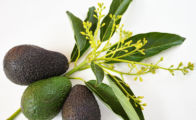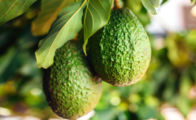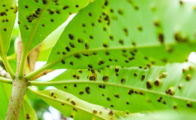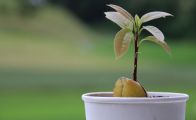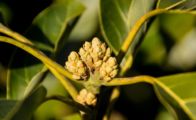While you may have heard of a Hass avocado or a Californian avocado, did you know there are actually dozens of avocado varieties out there? If you’re interested in learning to grow avocados, either from pits or from plants, it’s important to know what your options are. In this article, we’ll discuss the type A avocado.

Everyone Has Heard of Hass
Most of us who buy avocados frequently have heard of Hass avocados. They’re readily available in most grocery stores and they’re delicious. Did you know that Hass avocados aren’t necessarily popular because of their taste? While they are good, Hass avocados are produced in such high numbers because they ship and store quite well. That means they can survive being shipped long distances, to a grocery store near you, while still maintaining their freshness. This makes Hass avocados the most appealing for mass production and distribution. However, this doesn’t mean that Hass is the best avocado.
Type A Vs. Type B Avocados
There are 2 broad groups of avocados, Type A and Type B. They are differentiated by the way their flowers bloom. We discuss the difference between Type A and Type B in more depth here. For the purpose of this article, know that growing both Type A and Type B avocados in close proximity is best to ensure the optimal production of healthy fruit. Types like Hass and Reed are known to still produce well without a partner tree of the opposite type, but some types of avocado trees almost fail to produce at all in such circumstances.

Type “A” Avocado Varieties
Type A avocado trees produce avocados that are dark green, with thick, bumpy skin. Hass is a type A avocado, and other Type As resemble a Hass avocado. In fact, many other Type As are descended from the Hass avocado.

Hass
As we mentioned above, Hass avocados are arguably the most popular kind of type A and commercially-grown avocado. The Hass variety was first grown in Southern California in a backyard in the 1930s.
Flower/Pollination: Type A avocado
Zones: 9-11
Tree Growth: This tree can grow up to 35 feet but can be kept shorter through regular pruning.
Hardiness: sensitive to frost below 32 degrees Fahrenheit. Less heat-tolerant than some other types.
Fruit: Creamy, nutty, high-fat flesh, and a medium to large fruit. The skin is thick-textured and turns dark green to black when ripe.
Bloom Time: February to May
Ripening: April through September from the previous year’s flowers. The Hass fruits stay on the tree for 12 to 14 months.
Pinkerton
Flower/Pollination: Type A avocado
Zones: 9-11
Tree Growth: The tree is medium in size, with a sprawling canopy, and is very manageable.
Hardiness: hardy down to 30 degrees Fahrenheit.
Fruit: Pinkerton avocados are oblong, slender, and pear-shaped. They have a smaller pit than Reed avocados. The skin is thick, easy to peel, and stays green when ripe.
Bloom Time: Spring
Ripening: November to April
Reed
Reed avocados require less water than Hass avocados, which is important in areas where droughts are common.
Flower/Pollination: Type A avocado
Zones: 10-11
Tree Growth: Reed trees grow slender and upright. These compact trees are ideal for tight spaces as long as they’re kept well-pruned. They can reach 37 feet at maturity and easily produce fruit without a partner pollinator.
Hardiness: Cold hardy to 32 degrees Fahrenheit and more heat tolerant than Hass.
Fruit: Produces large, round green avocados. The skin is thick, slightly bumpy, and easy to peel.
Bloom Time: Spring to summer
Ripening: Fruit ripens the summer after pollination.
Lamb Hass
Lamb Hass is a cross between Hass and Gwen avocado varieties. Gwen is a semi-dwarf type.
Flower/Pollination: Type A avocado
Zones: 9-11
Tree Growth: This cross is a medium-sized upright and compact tree.
Hardiness: Cold sensitive below 30 degrees Fahrenheit and more heat tolerant than Hass.
Fruit: Similar to traditional Hass. Great flavor and high oil content. Thick, pebbly skin, is black when ripe but not as easy to peel as Hass avocados.
Bloom Time: Late winter to spring
Ripening: April to November the year after pollination. Lamb Hass has a longer, later season than Hass but also takes longer to mature on the tree.
Carmen Hass
Flower/Pollination: Type A avocado
Zones: 9-11
Tree Growth: A medium to large-sized tree grows up to 30 feet tall. It has a round, dense canopy.
Hardiness: Cold tolerant to 30 degrees Fahrenheit.
Fruit: Very similar to traditional Hass but with slightly smaller fruit. Great flavor and high oil content. Thick, bumpy skin turns black when the fruit is ripe.
Bloom Time: Carmen Hass has 2 distinct blooming seasons, one in spring and sometimes again in late summer.
Ripening: November through the following September/October, bearing fruit a few months earlier than a standard Hass.
Gwen
Gwen is a semi-dwarf avocado variety. Its small size and ability to produce many avocados make it a great option for urban gardening. This tree can even be grown in a large container.
Flower/Pollination: Type A avocado
Zones: 9-11
Tree Growth: One of the smaller varieties of avocado, this tree usually only grows to about 15 feet in height. It can be pruned and maintained even smaller.
Hardiness: Cold-tolerant to 30 degrees Fahrenheit.
Fruit: Similar to Hass in texture and flavor, but not quite as creamy. The avocado fruit are larger than Hass, with thick skin that turns dark green instead of black.
Bloom Time: Spring
Ripening: May to September the year after pollination.

Stewart
The Stewart variety is an offspring of Mexicola Grande, but it’s more compact.
Flower/Pollination: Type A avocado
Zones: 8b-10
Tree Growth: A Stewart variety avocado tree is a medium size, reaching 20 to 25 feet.
Hardiness: Cold tolerant down to 20 degrees Fahrenheit.
Fruit: Pear-shaped fruit with thin, leathery skin that turns black when ripe.
Bloom Time: Spring
Ripening: October to December

Mexicola Grande
Mexicola is the most cold-tolerant Type A variety that is also more heat-hardy than traditional Hass trees.
Flower/Pollination: Type A
Zones: 8b-11
Tree Growth: Mexicola Grande is a fast-grower and heavy producer. It bears fruit regularly and heavily. This tree is large, capable of growing taller than 40 feet.
Hardiness: Cold tolerant down to 20 degrees Fahrenheit.
Fruit: Large fruits, almost a pound each, with large pits. The skin is dark green to black when ripe.
Bloom Time: Mid-spring to early summer.
Ripening: August to October



